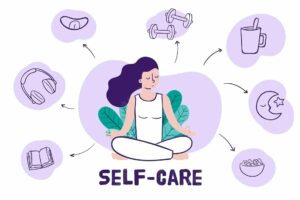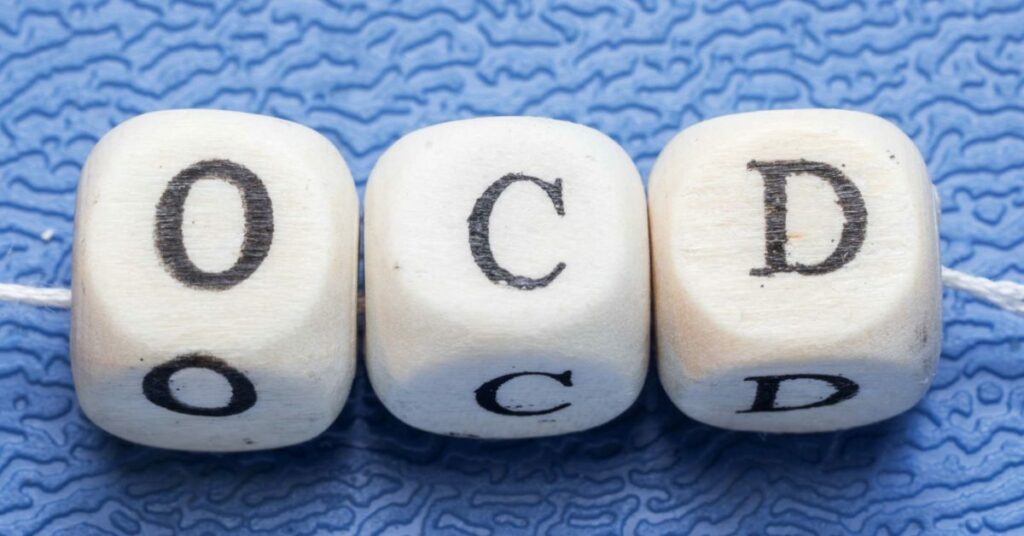Do you feel like your life is being controlled by obsessive thoughts and compulsive behaviors? If so, you are not alone. OCD (obsessive-compulsive disorder) is a common mental health condition that can make it difficult to go about your day-to-day life. But don’t worry, there are strategies for overcoming OCD! In this blog post, we will discuss tips that how to overcome OCD symptoms. Keep reading to learn more!
Contents
- 1 How To Overcome OCD?
- 1.1 Be patience
- 1.2 Relaxation Techniques
- 1.3
- 1.4 Challenge your thoughts
- 1.5 Self Care
- 1.6 Set realistic goals
- 1.7 Break up larger tasks into smaller ones
- 1.8 Stick to your routine
- 1.9 Find a balance in your life
- 1.10 Get support from family and friends
- 1.11 Talk to a trustworthy therapist
- 1.12 Medication
- 1.13 Join a support group
- 2 Conclusion
How To Overcome OCD?
OCD, or Obsessive Compulsive Disorder, is a mental health disorder that affects about two percent of the population. It is characterized by obsessions, which are unwanted and intrusive thoughts, images, or urges that trigger anxiety, and compulsions, which are repetitive behaviors or mental acts that a person feels driven to do to reduce their anxiety.
There is no one-size-fits-all approach to overcoming OCD, but there are some effective strategies that can help. If you or someone you know is struggling with OCD, here are some things to keep in mind:
Understand what OCD is and how it works, the more you know about the disorder, the better equipped you’ll be to manage it. it’s important to understand that OCD is an anxiety disorder and that obsessions and compulsions are attempts to cope with anxiety. One of the most important things that you can do is to educate yourself about OCD. Here are some ways to overcome OCD:
Be patience
 It takes time to learn new habits and break old ones. Change takes time, so don’t expect to overcome it overnight. It may take weeks, months, or even years to see significant improvement. For example, if you’re trying exposure and response prevention (ERP), which is a common treatment for OCD, it can take up to four weeks to start seeing results. If you’ve been avoiding germs for years, it will take time to feel comfortable shaking hands or using a public restroom.
It takes time to learn new habits and break old ones. Change takes time, so don’t expect to overcome it overnight. It may take weeks, months, or even years to see significant improvement. For example, if you’re trying exposure and response prevention (ERP), which is a common treatment for OCD, it can take up to four weeks to start seeing results. If you’ve been avoiding germs for years, it will take time to feel comfortable shaking hands or using a public restroom.
Relaxation Techniques
There are several relaxation techniques that can be useful in managing OCD symptoms. Some people find that deep breathing exercises, progressive muscle relaxation, or mindfulness meditation help to reduce anxiety and improve focus. Others find relief through yoga, Tai Chi, or other forms of exercise.
Challenge your thoughts
OCD is based on irrational thoughts. By challenging these thoughts, you can start to see them for what they are. For instance, if you’re afraid of getting sick, remind yourself that everyone gets sick at some point and that there’s no such thing as being “germ-free.” One of the core aspects of OCD is distorted or irrational thinking. If you can challenge and change the way you think about things, you can help reduce your OCD symptoms. For example, if you’re afraid of getting sick, challenge the belief that you need to avoid all germs at all costs. Instead, focus on following good hygiene habits, such as washing your hands regularly.
Self Care
 Managing OCD can be exhausting. Be sure to take care of yourself by:
Managing OCD can be exhausting. Be sure to take care of yourself by:
- Eating a balanced diet: Eating nutritious foods helps your body to better cope with stress.
- Staying hydrated: Drinking plenty of water helps to keep your body and mind healthy and focused.
- Exercising: Exercise releases endorphins, which have mood-boosting effects.
- Getting enough sleep: Sleep gives your body a chance to heal and repair itself.
The most important thing is to seek out the help that you need and never give up hope. Also, make time for activities that you enjoy and that reduce stress.
Set realistic goals
Trying to accomplish too much at once can be overwhelming and can increase anxiety and OCD symptoms. Set small, achievable goals each day so that you don’t feel overwhelmed.
Break up larger tasks into smaller ones
If you have a project that seems insurmountable, break it down into smaller tasks. For example, if you need to clean your entire house, break it down into rooms or even individual tasks. Cleaning one room or completing one task at a time will make the overall goal seem much more manageable.
Stick to your routine
One of the most important things you can do to manage your OCD is to stick to a daily routine. This means getting up at the same time each day, eating regular meals, and going to bed at the same time each night. By sticking to a set schedule, you’ll help minimize the anxiety that can trigger OCD behaviors.
Find a balance in your life
It’s also important to find a balance in your life. This means taking time for yourself every day to do things you enjoy, such as reading, listening to music, or spending time with friends and family. Taking breaks from your OCD behaviors will help you better manage them overall.
Get support from family and friends
It’s important to have a strong support system when you’re dealing with any mental health disorder. for instance, friends and family can help you stick to your treatment plan, offer emotional support, and provide practical assistance. If you’re dealing with OCD, make sure to let your loved ones know what they can do to help you.
Talk to a trustworthy therapist
If you’re struggling to manage your OCD on your own, consider seeking professional help. A therapist who specializes in treating OCD can provide you with support and guidance.
Working with a qualified mental health professional is an important part of treatment for OCD. If you’re not sure where to start, ask your doctor for recommendations or search online.
Exposure and response prevention (ERP) is a type of cognitive-behavioral therapy that involves gradually exposing yourself to the things you’re afraid of and learning to resist the urge to engage in compulsive behaviors. For instance, if you’re afraid of dirt, you might expose yourself to progressively dirtier environments while resisting the urge to wash your hands.
Medication
In some cases, OCD can be treated with medication. Antidepressants are often used to treat OCD, as they can help reduce the anxiety and compulsions associated with the disorder. There are various types of antidepressants, so it may take some trial and error to find one that works for you.
Join a support group
There are many online and in-person support groups for people with OCD. This can be a great way to connect with others who understand what you’re going through. There are also many online support groups for people with OCD. These groups can be a great way to connect with others. You can also find online support groups for people with OCD.
These are the ways that have helped people in the past with OCD, but everyone is different. Some other things that may help you manage your OCD symptoms. You might also find it helpful to keep a journal to track your thoughts and progress. Remember, the most important thing is to be patient with yourself and stick with treatment even when it’s tough.
Conclusion
It may be concluded that to handle OCD, a combination of therapy, medication, and self-help books may be necessary. Some people may also need to read about OCD and talk to other people who have the condition to better understand it. However, everyone is different and will require different strategies to overcome them. If you or someone you know is struggling with OCD, reach out to a mental health professional to get started on the road to recovery.
For further information and suggestions, please contact Therapy Mantra. We have a team of expert therapists that can help you overcome this problem. Get in touch with us right away to learn more about our services. You may also make an online therapy session or download our free Android or iOS app.



